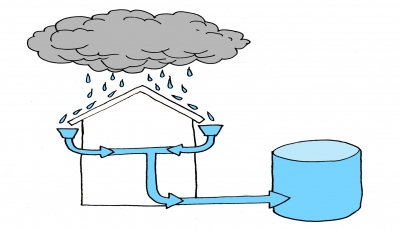Comprehensive Solutions for Industrial Waste Water Treatment by Reclaim Waste Melbourne
Wiki Article
The Crucial Duty of Correct Fluid Waste Elimination Strategies in Waste Monitoring
In the world of waste administration, the relevance of employing ideal fluid waste elimination techniques can not be overemphasized. The complex internet of interconnected environmental, health, and safety and security factors to consider depends upon the efficient monitoring of fluid waste. From protecting our ecological communities against contamination to upholding public wellness requirements, the proper disposal of fluid waste plays an essential role in keeping a healthy and balanced and sustainable environment. This pivotal duty extends past mere waste elimination, influencing a multitude of markets and aspects of our every day lives. It is within this structure that the implementation of audio liquid waste elimination techniques stands as a keystone of accountable waste management methods.Importance of Appropriate Fluid Waste Elimination
Why appertains fluid waste elimination vital in keeping ecological and public wellness standards? Appropriate fluid waste elimination is important for securing the setting and upholding public health requirements. Liquid waste removal. Liquid waste, if not handled properly, can present significant risks to ecosystems, water sources, and human health and wellness. Improper disposal of liquid waste can cause contamination of groundwater, surface area water, and dirt, creating injury to marine life, plants, and possibly jeopardizing human populaces.
Ecological Advantages of Reliable Techniques
Executing efficient liquid waste removal techniques not just safeguards the setting yet likewise plays a vital function in maintaining public health criteria. By using appropriate techniques, such as advanced purification systems and responsible disposal methods, the environmental benefits are considerable. One of the main advantages is the avoidance of contamination of all-natural water sources. Inappropriate disposal of fluid waste can cause contaminants seeping into the dirt and at some point reaching groundwater reservoirs, affecting both human wellness and communities.Additionally, efficient fluid waste removal methods help alleviate the threat of waterborne conditions. By guaranteeing that hazardous materials are not released into water bodies, the spread of conditions brought on by polluted water can be decreased. Proper waste management practices contribute to the conservation of marine life. Poisonous chemicals in liquid waste can have damaging results on fresh water and aquatic microorganisms, disrupting environments and biodiversity.
Health Implications of Inadequate Removal
The harmful health implications connected with inadequate liquid waste removal underscore the essential importance of correct disposal approaches and reliable monitoring techniques. Incorrect removal of fluid waste can lead to the contamination of water sources, posing significant wellness dangers to both people and wild animals. When fluid waste containing harmful chemicals, pathogens, or various other toxins is not properly eliminated and treated, it can permeate right into groundwater, rivers, and oceans, jeopardizing the top quality of alcohol consumption water and aquatic ecosystems.Exposure to polluted water as a result of inadequate fluid waste removal can cause numerous illness, including gastrointestinal illnesses, skin infections, respiratory system concerns, and even extra serious problems such as organ damage or neurological conditions. In addition, the release of untreated fluid waste into the environment can add to the spread of waterborne diseases, producing public wellness situations that call for substantial resources to attend to.
Therefore, executing proper liquid waste elimination methods is necessary to protecting public health and wellness and protecting the integrity of ecological communities. Industrial waste water treatment. By prioritizing efficient waste management methods, we can reduce the wellness dangers connected with inadequate fluid waste elimination and promote a much healthier setting for all
Duty in Stopping Water Contamination
Effective fluid waste removal techniques play an important function in preventing water contamination and safeguarding public health and wellness. Inappropriate disposal of fluid waste, such as unattended sewer or industrial effluents, can cause the contamination of water resources, posturing severe threats to human health and the setting. When fluid waste is not appropriately eliminated and dealt with, dangerous materials can leak into groundwater, rivers, and oceans, contaminating drinking water products and water communities.
Infected water can bring a variety of toxins, consisting of pathogens, hefty steels, and chemicals, that have the possible to cause waterborne illness, ecological damage, and long-lasting health and wellness impacts in humans and wild animals. Correct liquid waste removal methods, such as wastewater treatment plants, septic systems, and commercial effluent therapy facilities, are necessary for removing or reducing the effects of dangerous pollutants before they can get in water bodies.
Making Certain Safe Disposal Practices
Making certain appropriate disposal methods for fluid waste is necessary to shield water sources and public health from contamination dangers. Proper containment and storage of liquid waste are essential to stop leaks or spills that could leak into the dirt and infect groundwater sources.
Conclusion
In conclusion, correct liquid waste elimination strategies play an important function in waste monitoring by protecting against environmental contamination and protecting public wellness. Efficient removal methods ensure the secure disposal of fluid waste, decreasing the unfavorable effect on communities and water resources. It is critical for markets and individuals to take on responsible methods to alleviate the dangerous effects of improper fluid waste disposal.In the realm of waste management, the value of employing proper liquid waste removal methods can not be overemphasized. It is within this framework that the execution of audio fluid waste removal methods stands as a keystone of responsible waste monitoring practices.

Report this wiki page